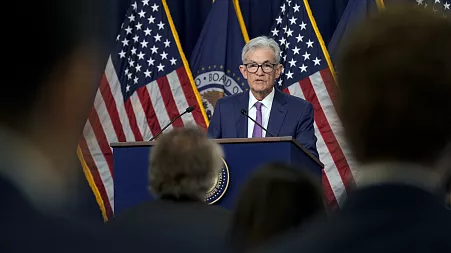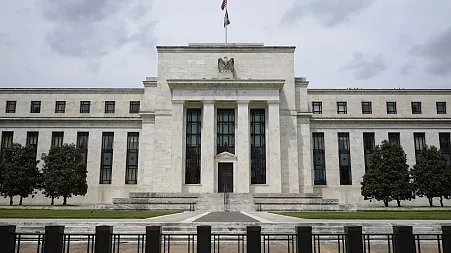Based on character alone Elon Musk would probably be the last person you would choose to become the most lavishly paid chief executive in history. The billionaire might be the visionary of his generation but he’s about as dysfunctional as they come.
Sometimes his indiscretions are just that: the act of a highly impulsive entrepreneur who either doesn’t stop to think before he does something, or perhaps is so “on the spectrum” – as his biographer put it – that he is unable to see when things are likely to end badly.
The time Musk fell foul of securities laws for tweeting that he planned to take Tesla private springs to mind. On other occasions, such as when he smoked cannabis on a live podcast, we see a juvenile rebel playing to the crowd and sticking two fingers up at the system.
Then there’s the Musk who is no longer simply pushing boundaries but exposing the unpleasant, petulant side of his complex personality. Accusing the cave diver that helped to rescue a group of trapped Thai schoolchildren of being a paedophile was both cruel and false.

Meanwhile, allegations in the Wall Street Journal that the billionaire created a culture of sexism and harassment at his Space-X venture by pursuing female employees for sex, are a reminder of the toxicity that seems to follow Musk, not to mention the alarming sense of impunity that he exudes.
Yet, in spite of a catalogue of gaffes, lapses of judgement, and in some cases plain ugliness, I find myself reluctantly batting for Musk ahead of Thursday’s crunch shareholder vote that will determine whether its maverick founder is entitled to an eye-watering $45bn (£35bn) pay day.
Rebel shareholders had the payout blocked in a Delaware court earlier this year, but Tesla is attempting to have it restored and Musk took to social media hours before the ballot to claim he is heading for a decisive victory.
His behaviour is a red herring anyway because dissenting investors haven’t cited it as a reason to block the award – perhaps if they did they might have a far stronger case than simply whining about it being too much.
Musk had been in line to pocket $56bn of share options but the fall in Tesla’s share price means it’s worth $45bn today. Of course that’s still too much. It is an utterly obscene amount of money to award any individual, even someone of Musk’s undoubted yet flawed genius.
Its value is more than the annual GDP of Bahrain, Uganda or Libya and enough to wipe out the entire debt of Latvia, Jordan or Panama in the blink of an eye. It is also equivalent to Britain’s national defence budget and one million times more than the average salary of a Tesla employee at the time that the pay deal was struck in 2018.
By any reasonable measure it is grotesque.
And given that Musk is the richest individual on the planet with an estimated fortune totaling $210bn, according to Forbes’ “real-time” billionaires list, he is literally the last person in the world in need of any more money, nevermind such an unfathomably gigantic sum.
Yet, that misses the point too. The figure is actually irrelevant. The only thing that matters in this dispute is that shareholders okayed the pay package back in 2018, so to try to reverse it now is beyond the pale.
The facts are that he was promised it, earned it under the terms set out as part of a legally-binding agreement and is therefore entitled to be paid in full. If it’s too much now then surely it was back then. It’s no use moaning now. Investors should have given it more thought before they blithely waved the deal through.
At least some of Musk’s adversaries, like Norway’s sovereign wealth fund, voted against the award when it was drawn up so they can claim to have been consistent in their stance.
But a $1.7 trillion investment fund that generates the majority of its spectacular riches by plundering the earth’s natural resources is hardly in a position to take the moral high ground on anything. Yet somehow such is the upside-down world of ethical-driven investing – the Norwegian investor has become one of the most vocal opponents of high pay in the western world.
Its hypocrisy is exceeded only by the greedy lawyers who had the pay award overturned, who have demanded a whopping $5.6bn in legal fees, which is 17 times as large as the biggest fee in Delaware history. What’s more, they’ve had the front to ask for payment in Tesla stock.
What’s most dumbfounding about the hoo-ha is that Musk is only eligible for the share options because they were inextricably tied to some major gains in the Tesla share price.
As Tom Slater, manager of the FTSE 100 Scottish Mortgage Investment Trust, told the Financial Times last month: “We agreed the remuneration package with Tesla because it introduced extremely stretching targets that would make a huge amount of money for shareholders if they were reached.”
In other words, in hitting those targets it isn’t just Musk that has become considerably wealthier, he has made every single Tesla shareholder that has held the shares since that day, much richer too.
In all likelihood, few of the signatories believed the targets could be achieved. After all, Tesla’s market cap had to jump from $50bn at the time to $650bn over the next decade. As it happens, that was achieved in just three years. That’s a heroic 13-fold increase – the sort of returns that you would struggle to find anywhere else.
In trying to derail Musk’s big pay day, Tesla’s investors have achieved the unthinkable: surpassing his man-baby antics with their pathetic cry-baby protests.
Disclaimer: The copyright of this article belongs to the original author. Reposting this article is solely for the purpose of information dissemination and does not constitute any investment advice. If there is any infringement, please contact us immediately. We will make corrections or deletions as necessary. Thank you.



